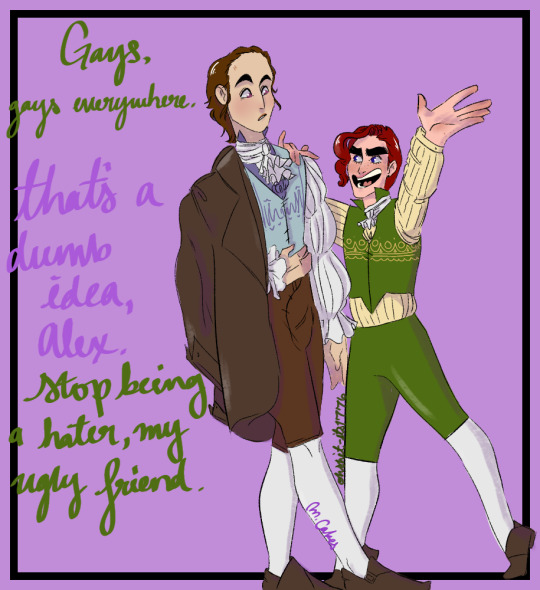#john jay
Text
it will never fail to amuse me that john jay, the (apparently) level-headed, reasonable guy that everyone passes over, caught a stray in hamilton. it doesn't have time for the jay treaty but it does have time to say "john jay got sick after five", forever cementing his memory in the public consciousness as the slacker in the group project.
#sorry john jay you deserve better#from what i know of you it sounds like you were surrounded by unhinged maniacs from all sides#and it isn't your fault you were sick#john jay#hamilton#hamilton the musical#musical hamilton#hamilton musical
51 notes
·
View notes
Text
HAMILTON WROTE… ALL THE EIGHTY FIVE!!!

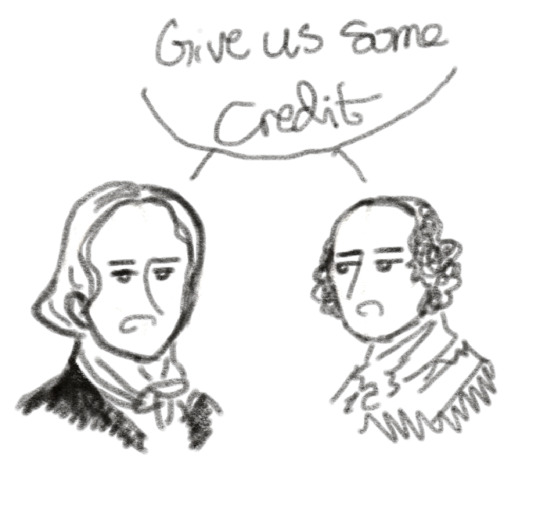
193 notes
·
View notes
Text

Federalist gang!!!!!!!
#alexander hamilton#james madison#john jay#historyposting#my art#sorry to the 3 john jay fans on tumblr for drawing him in the back like that
130 notes
·
View notes
Text
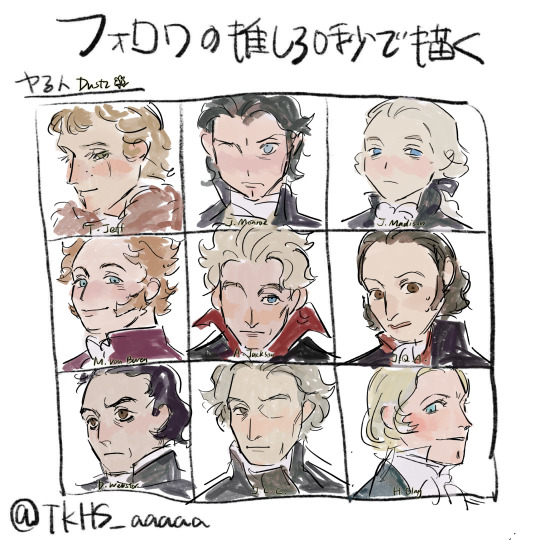
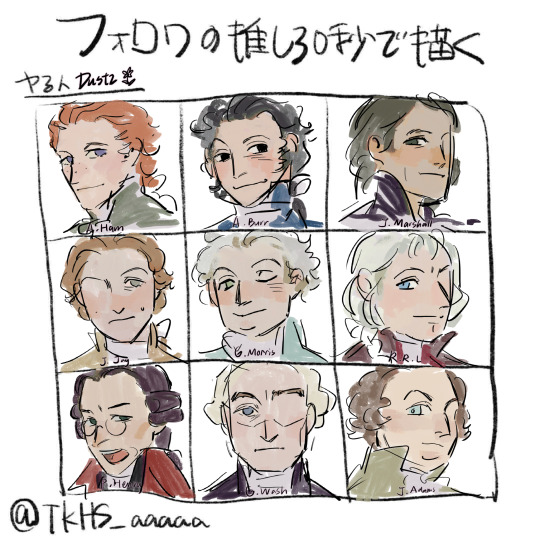
Too many old stuffs lol dk which to post everyday
tagging these names makes me sick
#amrev#amrev fandom#thomas jefferson#james monroe#james madison#martin van buren#andrew jackson#john quincy adams#daniel webster#john c. calhoun#henry clay#alexander hamilton#aaron burr#john marshall#john jay#gouverneur morris#robert r. Livingston#patrick henry#george washington#john adams
131 notes
·
View notes
Text

149 notes
·
View notes
Note
Hello, recently you answered an ask about how Hamilton reacted to the Hamilton-Madison fallout, and one of the things you said was "These men were very crucial figures in American law, which shows that, unlike men like Jefferson, he [Hamilton] was very selective in who he chose to associate with when it came to his work."
Was Jefferson particularly indiscriminate when it came to finding collaborators, or was Hamilton particularly selective (or a little bit of both)? Could you provide some examples for this contrast?
hello first of all, the structure of your ask had me literally salivating screaming crying on the floor because this is such a wonderfully structured ask and it is the perfect formula to get an in depth response bc there’s so much i could talk about here. i love you. anyway-
Let's break this down to each dude. First, the worst dude, Thomas "freak" Jefferson. Jefferson's political career began when he joined the House of Burgesses, which, as the name implies, is a house of Burges (its a legislature). His first major publication was A Summary View of the Rights of British America, a Revolutionary work of literature that called King George III a cunt in formal language, was done entirely by himself, and it was rejected by his contemporaries for being too radical. This gained him a reputation for being a blue haired liberal.
Source: The American Heritage Book of the Presidents and Famous Americans (book 2)
Jefferson would go on to write The Causes and Necessity of Taking up Arms with John Dickinson in July, 1775 to, yk, explain the causes and necessity of taking up arms against the British. John Dickinson was a very well known politician, being a member of the Continental Congress and one of the elite group of Americans who had the chance to be educated in England. Both Jefferson and Dickinson were known revolutionary voices, despite the differences of opinion that would arise between them in the following debate on independence. They were also both members of the Second Continental Congress.
Source: American Battlefield Trust, Delaware Historical and Cultural Affairs
The question of why Jefferson worked with Dickinson is most relevant to this ask. And the answer, in my opinion, is just because it was convenient. The Continental Congress was the best- "best"- men of each state coming together to represent their respective homelands. Dickinson and Jefferson most likely had conversations about the subject they would go on to write about, and decided to write it down and publish it for public benefit. We'll come back to this later.
Okay, now the elephant in the room: the Declaration of Independence. I find this subject so boring so bear with me. Jefferson was chosen by the Declaration committee (consisting of John Adams, Benjamin Franklin, Thomas Jefferson, Robert Livingston, and Roger Sherman) as he was already known as a Revolutionary writer and one of the best educated of them. He wrote the original draft on his own- well, technically- and then it was edited by the rest of the committee, and then by the rest of Congress.
Oh, but Henry! You said technically! Why? Well, dear reader, I'll tell you, be patient, jesus fucking christ. Jefferson highly based the Declaration off of Richard Henry Lee's resolution calling for independence in the Continental Congress, but mainly off of the philosophies of John Locke. That famous phrase we all know was almost word-for-word the writings of John Locke. I even once wrote an essay on how Jefferson essentially plagiarized John Locke in my sophomore government class.
"We hold these Truths to be self-evident, that all Men are created equal, that they are endowed by their Creator with certain unalienable Rights, that among these are Life, Liberty, and the Pursuit of Happiness..." -Thomas Jefferson, Declaration of Independence, July 4, 1776
Source: my pocket Declaration/Constitution LMAO i really busted that out like an absolute nerd
"All mankind... being all equal and independent, no one ought to harm another in his life, health, liberty or possessions." -John Locke, Second Treatise on Government, 1690
Source: brainyquote.com and a suspicious PDF of excerpts that I narrowly avoided a virus while accidentally downloading
I think that the Declaration is a pretty good example of how Jefferson, and 18th century American government, usually performed. This famous document was created by committee, and through education on 17th century philosophy. There were not multiple men working on the original draft of this, and the men who did work on it were not selected by Jefferson, and his major works are almost entirely attributed to him alone. He'd go onto write other historical documents such as Notes on Virginia and Anas (which are a more interesting and complex document) in this same form.
Source: Alexander Hamilton by Ron Chernow, Founders Online
He did consult with other men when it came to information and intelligence on political enemies later in his political career. These men were mostly hyper-relevant Democratic Republicans, who tended to be rich, southern landowners (aka slaveholders), at least those who associated with Jefferson. The most iconic of these were, of course, James Madison and James Monroe. Jefferson frequently consulted them, and Monroe (allegedly) gave Jefferson copies of the documents Hamilton showed to him to prove he had not been speculating with James Reynolds, but had actually been sleeping with his wife.
Source: Alexander Hamilton by Ron Chernow, The Three Lives of James Madison by Noah Feldman
To summarize, Jefferson was not necessarily indiscriminate with who he associated with, and he didn't even really work that much with other men on his major writings. However, we can see a definitive pattern of Jefferson only really associating with other members of his class, neither below or above him. And this just very simply makes sense. Jefferson, as did the rest of the 18th century, believed that there shouldn't be any cross contamination between the social classes. He also believed that the only really smart people were in his class. And he wasn't aggressive about this, it's just a passive belief due to the way society was structured.
UNTIL!
Alexander Hamilton was literally opposite to Jefferson in every sociocultural way. In Jefferson's eyes he was an ambitious upstart who rose through the ranks, defying the social order that kept society from collapsing.
You'll hear a lot of people say that in forming America, the Founding Fathers had undone this rigid social class system, but that really isn't true. The class system in Europe was entirely different than the one that developed in America, but it still definitely existed in some form. Without the court system, America formed a loose sort of aristocracy that depended on land ownership and/or success in the mercantile business. In Europe, you'd see members of the clergy having their own class, but in America, it was entirely based on wealth, and less on birthright, but if your parents were not wealthy, the only way you could become wealthy was by getting in on some kind of get-rich-quick scheme, like owning a plantation or being a lawyer.
What made Hamilton different from this was that Jefferson, and other enemies, could literally watch in real time as he rose through the ranks. He could see him go from a captain in the artillery, known for his bravery in the New York campaign (someone who would eventually be forgotten), to Washington's aide-de-camp (okay... but he'll probably still fade into obscurity), to a member of the Confederation Congress (oh! well, okay, but that doesn't particularly mean anything, this is probably the highest he'll get), to the only New York delegate in town for the Constitutional Convention and the only person from New York to sign it (well that'll get him in the history books...), to the FIRST SECRETARY OF THE TREASURY OF THE NEW US GOVERNMENT (WHAT THE FUCK HOW DID HE FUCKING DO THAT WHAT THE FUCK GET HIM OUT).
Source: Alexander Hamilton by Ron Chernow
So, let's talk about Hamilton's political career now, specifically through tracking his writings.
One thing the musical gets right is that Hamilton DEFINITELY utilized anonymous pamphlet publishing throughout his political career. And these are some of my favorite documents ever. From A Farmer Refuted to The Monitor to The Publius Letters to Pacificus, Hamilton absolute served irreparable cunt in all of these writings, and there are more than what I've listed, I just haven't finished my chronological list of Hamilton's published works.
"I'll use the press, / I'll write under a pseudonym, you'll see what I can do to him [Jefferson]." -Alexander Hamilton in Hamilton by Lin Manuel Miranda
Source: Blumenthal Performing Arts
All of these anonymous publishings had some things in common that I've used to categorize them:
A target (usually a person he didn't like and thought was immoral)
A core lesson (typically a political stance he was taking at the time that he wanted to defend and garner support for publically)
A newspaper publisher that was symbolic or strategically important in some way (either an enemy newspaper, and up-and-coming newspaper, an old friend's newspaper, etc.)
multiple editions
2-3 coauthors/beta readers
Almost each one of these publications follows this pattern, though number 5 tends to be the least common among all of them. But, since his college days, Hamilton would ask for his friends' input on his writings (whether or not he accepted their advice is not confirmed). Before he would give his college-era speeches, he would consult with the small debate group he and his friends made before he gave those speeches. When he was writing The Publius Letters, he most likely consulted with his lover, John Laurens, on the subject matter, as Laurens had close connections with congress, and the target (number 1 on the above list) was Samuel Chase, a congressman who had basically scammed soldiers out of food, causing many to starve for a prolonged period.
Source: Alexander Hamilton by Ron Chernow, John Laurens and the American Revolution by Gregory D. Massey
Like Jefferson, Hamilton had his magnum opus, and the influence of others played a major role in defining the document. Hamilton would ask other men, including William Duer, and Gouverneur Morris to write this document, but ultimately settled on John Jay and James Madison. This was, of course, The Federalist.
William Duer was related to Hamilton by marriage, as they married a set of cousins. Duer was educated in England and worked for the East India Company, which gave him a very good resume to be one of Hamilton's coauthors. However, the two submissions Duer made for The Federalist were rejected. Gouverneur Morris was a blue-blooded politician who gave the most speeches at the Constitutional Convention, a whopping 173. He spoke multiple languages and had been educated at King's College, which is now the ivy league Columbia. Morris was too busy to contribute to the project.
John Jay was the first coauthor selected. He had been the main draftsman of the New York State Constitution, a negotiator of the Treaty of Paris (1783), and was another alumni of King's College. He later became the first chief justice of the United States Supreme Court, and negotiate a treaty with Great Britain. Hamilton often called on him in regards to political matters, and the two were close, lifelong allies. Jay only wrote five of the 85 Federalist essays, because he was hit in the head with a fucking brick during the Cadaver Riots.
Source: Alexander Hamilton by Ron Chernow
The other principal author of The Federalist was James Madison. James Madison, in my opinion, was the most qualified to write The Federalist, despite his later delusions about the Constitution (which were largely the result of Jefferson's influence on his opinion but that's neither here nor there). James Madison was educated at what was considered the greatest educational institute in 18th century America: Princeton (then called the College of New Jersey). Madison was the reason Hamilton wasn't able to take an expedited course to his degree, because Madison had attempted to finish his four year education in two years, and had a nervous breakdown... fun fact...
But, still, he got his law degree from Princeton, and was in several legislatures, including the Virginia Governor's council where he met Jefferson. And of course, he was the author of the Virginia Plan, which was the foundation of the US Constitution of 1787. His notes on the Constitutional Convention are the most complete set of notes, and he was there every fucking day. So yeah, James Madison knew the Constitution pretty well, even if he eventually cared too much about states' rights to recognize what was blatantly written in the Constitution, and maintained that viewpoint until his presidency.
Source: Alexander Hamilton by Ron Chernow, The Three Lives of James Madison by Noah Feldman
The Federalist was not as evenly divided between the authors as Hamilton intended, since he could not shut the fuck up, but that's not the point. The point is that the men he sought to be his coauthors had several things in common: they attended prestigious educational institutions and had long histories of Revolutionary work. Reading of these men's person histories reads like you're going through a company's qualifications for their employees. Because it almost was except they weren't getting paid. Hamilton sought out these men based on their qualifications, and, as you can see by William Duer's rejected submissions, he had a high standard that they had to fit for him to affix his name next to theirs (which he didn't do until the weeks leading up to his death because he knew he was gonna die but that's a topic for another time).
I KNOW THIS IS LONG BUT IM STILL FUCKING GOING BECAUSE THIS IS WHAT HAPPENS WHEN YOU GIVE ME THE CHANCE TO ANSWER COMPLEX QUESTIONS ABOUT HISTORY INSTEAD OF THE SAME FOUR SHIT SUBJECTS THAT EVERY HISTORIAN COVERS IN THEIR BOOKS THANK YOU OKAY
This pattern of finding qualified contributors to his works continued throughout his life. Now, idk if you know this, but Hamilton was actually planning another The Federalist-style publication right before his death and i am LITERALLY SO EXCITED TO TALK ABOUT THIS
Hamilton told his visiting friend James Kent that he wanted to look through all of history and analyze government and the various forms it took throughout all of written history. Mirroring The Federalist, he intended to invite six to eight authors, including John Jay, Gouverneur Morris, Rufus King, John M. Mason, and James Kent. He thought that each of these men would write about the subjects in which they specialized (Kent on law, Mason on theological history, etc.) Hamilton would be in charge of writing a synthesis on the previous volumes.
"The conclusions to be drawn from these historical reviews he intended to reserve for his own task and this is the imperfect scheme which then occupied his thoughts." -Chancellor James Kent
Source: Alexander Hamilton by Ron Chernow
As you can imagine, these additional dudes followed the pattern shown above for Hamilton's qualifications for his coauthors, especially for a project this big. I mean, if this could have happened, it would have been literally incredible. I did the calculations, and it would have taken Hamilton five years after 1804 to get rid of all of his debts. If he had lived for that length of time, he could have started on this project, and alleviated the debts that later plagued his family. But that ties into my other theories on Hamilton's death, and that is just too weighty of a subject to get into in a post that's already this long.
To wrap this all up, the conclusion we can draw here is really just related to the class differences between Hamilton and Jefferson. Alexander Hamilton was not bound by a lack of social mobility in the 18th century, since he completely decimated that concept by his existence, which allowed him to view his co-contributors more objectively and more selectively. He handpicked those who he worked closely with based on their qualifications and their experience. His categorization of their abilities in that last example shows that he specifically sought them to speak on subjects they were most acquainted with.
Jefferson, on the other hand, didn't have that kind of social mobility, nor did he desire it. Jefferson stuck with his peers, who were mostly all lawyers of the same religion and political beliefs. While I'm not saying Hamilton was going around and writing alongside Democratic Republicans, he certainly didn't pick those he worked with based on like-mindedness or status. He chose them entirely on the basis of their revolutionary resumes, and that is really the difference we see in these two men's respective political careers. Was that the reason Jefferson was president and Hamilton wasn't? Definitely not. Was that the reason they didn't get along? Well, it certainly didn't make them like each other. Does it make Hamilton smarter? No, surprisingly. Do I like Hamilton more because of this? No comment.
I know this is lengthy, but I've literally been brewing up historical theory in my head for the past six months without having any outlet for it besides ranting at my parents and scribbling in the margins of Alexander Hamilton by Ron Chernow (as you can tell by my sources). I genuinely cannot say how much I appreciate this kind of question, because it not only gets me thinking, but it allows me to remember why I got into history in the first place, and why I want to spend the rest of my life educating people on the wonderous world of pussy politics between middle aged men that are so decomposed, the matter that made up their bald ass heads is probably in your drinking water (have fun thinking about that). Anyways, thank you for the ask and I hope you got enough examples :3
#alexander hamilton#john laurens#history#amrev#thomas jefferson#american history#founding fathers#gouverneur morris#james madison#john jay#james kent#early 19th century#18th century#1790s#hamilton#long post#asks#i have spent. four and a half hours on this post SJFKHS#could be more actually#this is why i need a podcast#this is the kind of thing that would be an hour long discussion rather than a tumblr post#that was fun#...what do i do with my life now
46 notes
·
View notes
Text





More founding father cats, eat up y’all
#rays art#history#us history#founding fathers#aaron burr#benjamin franklin#alexander hamilton#john jay#samuel adams
44 notes
·
View notes
Note
I had a project today, and I wrote the entire script while my partner, I kid you not, wrote one sentence. I'm considering renaming her in my contacts to John Jay.
THAT SUCKS SO BADD 😭 I also had a John Jay partner for a project a couple days ago >:( we had to research a bunch and then write four paragraphs, and she did... *checks notes*... our citations. Of sources that I found. ;-;
On a happier note, I had another chemistry partner project last night and my partner and I wrote an entire essay in one night 😀 (why is there so much writing in chem? I have absolutely no idea). She was a HUGE help, so if I'm Alexander Hamilton, she'd be John Laurens (just instead of writing essays against slavery, we wrote essays about chem...)
#hamilton wrote#THE OTHER FIFTY ONE#why do you write like you're running out of time#john jay#john laurens#fr though why am i writing an essay in chemistry#every day is a test of our camaraderie and bravery with this school system~
14 notes
·
View notes
Text
Who is truly the worst of the worst?
Who said you can't pit bad bitches against one another?
Get ready to cast your votes for the founding fathers that most make you want to build a time machine just so you can punch them in the face.

The rules are simple- vote for whomever you like least out of the two contestants. Use whatever criteria you want for your hatred.
*note: I used a very loose definition of "founding father" for this and I do not care if you don't consider some of these people founding daddies fathers
Polls will be active for 24 hours, so make sure you vote and reblog when you see it to make sure your voice is heard!
All information given on the poll posts will be pulled from wikipedia because I am too lazy to write entire paragraphs on all of these men myself.
Happy voting!
#founding fathers#amrev#history#early american history#alexander hamilton#george washington#thomas jefferson#john laurens#henry laurens#benjamin franklin#aaron burr#james madison#james monroe#george clinton#john jay#bracket#founding fathers bracket
57 notes
·
View notes
Note
I heard that once when Hamilton tried to publicly defend Jay's treaty with the British, he was stoned. What do you know about this?
(sorry for my english)
Stoned is a pretty exaggerated term, he got a rock thrown at his head. In the July of 1795, Hamilton saw a rally about the Jay Treaty and when he tried to convince the shouting crowd that the treaty was in their best interest, he was hit in the head with a rock and eventually left the stage. [x] Funny enough, George Cabot references this to Rufus King in a letter dated on the 27th;
It was observed here that your Jacobins were prudent to endeavor to knock out Hamilton's brains to reduce him to an equality with themselves; but I trembled at the first account which was related of that adventure & offer'd up an unfeigned prayer for his safety. I mean the silent prayer of an affectionate heart.
King, Rufus. The Life and Correspondence of Rufus King: 1795-1799. United States, G. P. Putnam's sons, 1895.
Hope this helps, and you're good!
#amrev#american history#alexander hamilton#historical alexander hamilton#jay treaty#18th century#george cabot#rufus king#john jay#history#queries#theworldneedsocean#cicero's history lessons
33 notes
·
View notes
Text
I’m working on a small Hamilton animation and guess which part I’m doing!
hints:

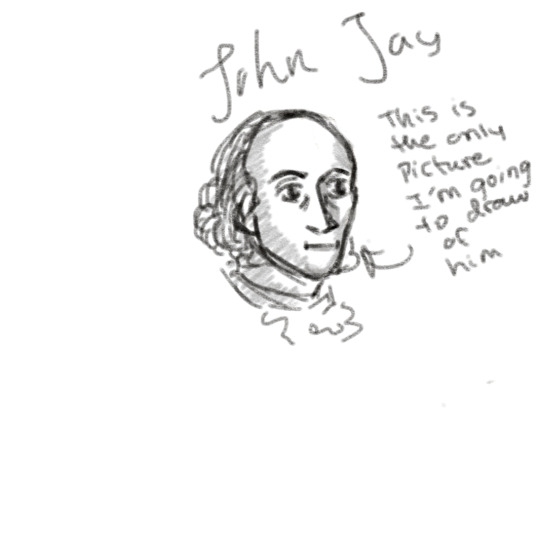
Yeah I think that’s really obvious.
I’ve never tried animating before so bear with me
11 notes
·
View notes
Text
How the Founding Fathers would react when you ask them their pronouns
George Washington: Calls you a slur

Thomas Jefferson: Calls you a slur
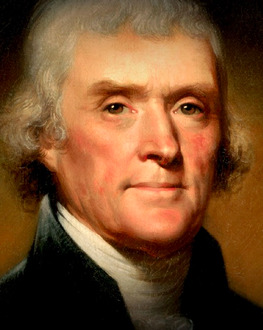
Alexander Hamilton: Calls you a slur

John Adams: Calls you a slur, then writes a letter to Abigail asking what pronouns are
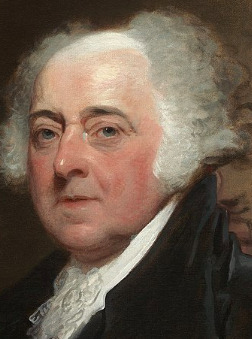
James Monroe: Calls you a slur
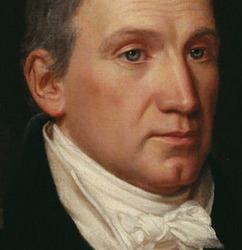
Benjamin Franklin: "He/him but I'd rather be in your/bed"

Aaron Burr: "He/him"
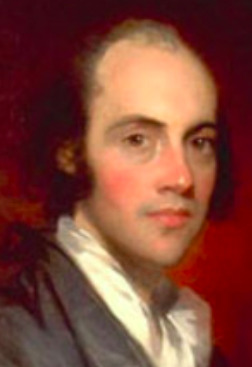
John Jay: Calls you a slur
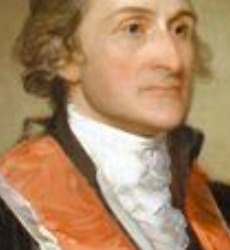
James Madison: Stares at you

#george washington#thomas jefferson#benjamin franklin#aaron burr#alexander hamilton#john jay#james madison#john adams#abigail adams#historyposting#historymemes
128 notes
·
View notes
Text
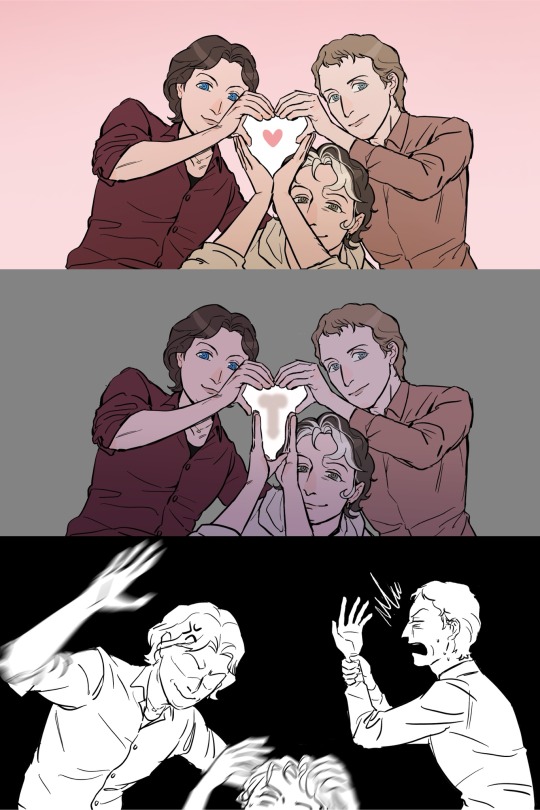
Thank u @kiliane who sent me the idea & reference and I immediately did this😭😭😭 this is so funny..
It’s been a long time since I draw these New Yorker boys () I somehow wanted to draw them again in dgrp au style
53 notes
·
View notes
Text


Family picture of the federalists
and yes I put Madison in><
#american revolution#amrev#amrev fandom#us history#james madison#george washington#alexander hamilton#john marshall#john adams#john jay
209 notes
·
View notes
Text
AH’s political prospects in 1798; Or, how a white man continually falls upwards
It’s a bit difficult to gauge the real-time reaction and consequences of AH’s late August 1797 publication of the Reynolds Pamphlet. We have newspaper articles, sure, and scattered letters here and there.
But this is even more interesting: Kaminski and Levinson (Levinson is a lawyer and publisher at statutesandstories.com; Kaminski is Founder and Director of the Center for the Study of the American Constitution at UWisc) published a blog post last year confirming that AH’s “secret” (all the discussions were supposed to be secret) plan, delivered on June 18, 1787 at the Constitutional Convention, was leaked and published in early 1798.
Kaminski and Levinson continue:
James Madison’s Convention notes were not published until 1840, after his death as the last surviving member of the Philadelphia Convention. Accordingly, historians have generally assumed that the full text of the Hamilton Plan only became public in 1840 after Madison’s death. As set forth below, recently rediscovered sources prove that the verbatim text of the Hamilton Plan was leaked to the press in January of 1798, during the vitriolic newspaper war of the 1790s.
[From Benjamin Franklin Bache’s Aurora on January 13, 1798]: The following document, which so complete unmasks the political character of the man who has been most instrumental in entailing on the United States those pernicious systems under which they now groan, comes to us thro’ a certain tho’ indirect channel, from a member of the Grand Convention.
...It has recently been discovered that after the Aurora published Hamilton’s Plan several Democratic-Republican newspapers quickly followed suit. In early 1798 the following newspapers republished the Hamilton Plan as a means of “unmasking” and attacking Hamilton’s “political character” as a monarchist:
Greenleaf’s New York Journal, January 17, 1798
The Alexandria Advertiser, January 23, 1798
The Independent Chronicle, January 25, 1798
The Bee, January 31, 1798
The Albany Register, February 2, 1798
The Poughkeepsie Journal, March 13, 1798
Whether Madison personally authorized the leak will require additional scholarship, which will be discussed in the pending book, My Most Ardent Wish: New discoveries and insights into the framing of the Constitution.
In the months to follow Statutesandstories.com and the Center for the Study of the American Constitution invite scholars to join in a deep dive into the Madison, Jefferson and Monroe papers looking for clues as to the reason(s) for releasing the confidential Hamilton Plan. While generations of historians and biographers have written about the growing schism between Madison and Hamilton, as far as can be determined no biographer has cited the leak of the Hamilton Plan in the Aurora on January 13, 1798. Why then? And to what end?
Look at these guys promising me a good time! A lot of interesting work has been published on the blog about the Constitutional Convention, how AH may have been in Philadelphia for more days than usually noted, done more politicking towards the other NY delegates than previously known, and how he may have been more active in the writing of the Constitution than usually attributed (hi Gouverneur Morris), in what they term the Hamilton Authorship Thesis. They also have provided some more information about missing/ previously unknown Hamilton legal cases (I’ll link one here), among other topics.
So even with the Reynolds Pamphlet and the publication of AH’s “monarchist” views, John Jay (then NY Gov) was willing to name Hamilton U.S. Senator from NY in April 1798 - without even asking him if it was okay!
The present delicate State of our public affairs, and the evident Expediency of filling this Vacancy without Delay, induce me without requesting your Permission and waiting for your answer, to determine to send you a Commission to fill that place, by the next Post. I can say nothing that will not occur to You. [19April1798, Jay to AH]
And then took a breath and sent off another note:
On further Reflection I doubt the propriety of appointing you without your previous permission, and therefore shall postpone it untill I receive your answer. If after well considering the Subject you should decline an appointmt. be so good as to consult with some of our most judicious Friends and advise me as to the Persons most proper to appoint and at the same time likely to accept. [19April1798, Jay to AH]
The situation was that Philip Schuyler had been elected Senator again in 1797, but then had to resign (3Jan1798) due to poor health. John Sloss Hobart had been NY Supreme Court justice for over 20 years and was appointed to Schuyler’s seat on 11Jan1798. But then he was nominated for the federal NY District Court by Pres. Adams. Did Jay think AH wanted to warm his father-in-law’s seat that badly? AH responded to Jay (24Apr1798):
I have received your two favours of the 19th instant. I feel as I ought the mark of confidence they announce. But I am obliged by my situation to decline the appointment. This situation you are too well acquainted with to render it necessary for me to enter into explanation. There may arrive a crisis when I may conceive myself bound once more to sacrifice the interest of my family to public call. But I must defer the change as long as possible.
I do not at present think of a person to recommend as adapted to the emergency. I shall reflect & consult and write you by the next post. This, the first day, is not decisive of our election here; but there is as yet nothing to discourage. With respect & attachment...
He’s already lawyering and anonymously publishing and meddling all over Adams’s administration and reading every newspaper mention of himself to respond to that too (and tending to his family, I guess)- when did Jay think AH would also have time to be a senator? The lucky fellow appointed Senator until the next legislative session instead was - William North. (James Watson was elected to the position in August 1798.)
And of course, in July George Washington would appoint Hamilton Inspector General with the rank of first Major General, jumping both Pinckney and Knox in rank. Yeah, Hamilton’s reputation and prospects were really suffering. And the biggest problem remained unaddressed - that Hamilton needed to make more money.
I believe it’s first attributed to Jefferson, but some of the Federalists also took to calling Hamilton “Colossus.” If he lived now, he could have made shirts with his picture and the logo “Too Big to Fail.”
#Alexander Hamilton#John Jay#George Washington#Philip Schuyler#William North#Quasi War#Hamilton lives - the War of 1812 never happens#Hamilton becomes the 1st Governor General of the British United States of America
18 notes
·
View notes
